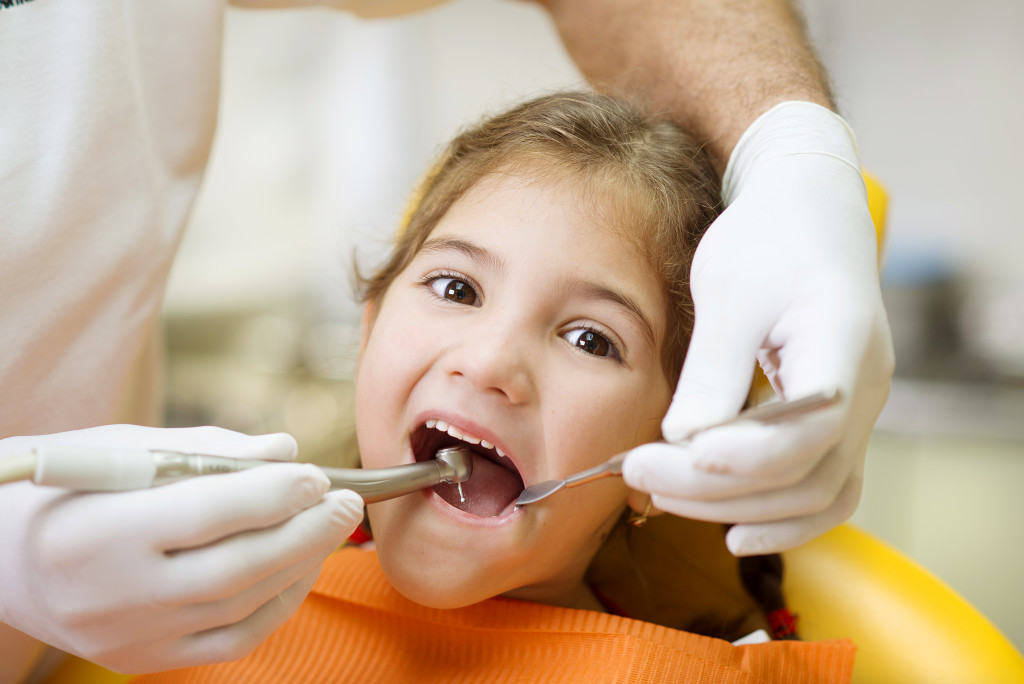Unsurprisingly, healthy teeth are essential for a strong immune system and overall health. As a parent, it can be hard to know when your child’s oral problem is severe enough to require medical attention.
Unfortunately, the prevalence of oral health issues in children is rising. Common problems that kids experience include tooth decay, cavities, and even gum disease, some of which can have serious long-term effects on their overall health. Here are six common oral problems in kids and how you should address them.
Cavities
Cavities, or tooth decay, occur when bacteria eat away at the tooth’s enamel. If left untreated, cavities can cause significant pain and discomfort for your child. Your child can develop cavities by not brushing their teeth twice a day with fluoride toothpaste, not flossing regularly, and consuming sugary foods and drinks. To prevent this from happening, make sure they brush correctly and often, floss daily, and eat healthy snacks!
Visiting a dental office at least twice a year is also recommended to ensure they don’t have cavities or other oral issues. Your trusted dentist can provide your child with a thorough examination and offer advice on how to best care for their teeth.
Tooth Erosion
Tooth erosion is a serious yet common dental problem for children. It occurs when vital minerals in the teeth dissolve, resulting in the loss of tooth enamel due to acidic foods and drinks. Without proper prevention, damage to the unprotected underlying dentin may lead to pain and sensitivity and an increased risk of dental cavities. A crucial part of successful treatment is regular visits with a dentist early on so that they can diagnose and provide preventive care before any significant damage occurs.
Fortunately, simple diet modifications can go a long way to protect teeth from further erosion and are recommended over more costly treatments such as fillings or crowns. When implemented in combination with good oral hygiene habits and routine checkups, improved diet choices can help minimize the risks associated with tooth erosion for children significantly.
Thumb Sucking
Thumb sucking is a common habit among children under four years old, but it can lead to dental problems if it continues past this age. If your child still sucks their thumb after four years old, consult your dentist about ways to break the habit before it causes lasting damage. The most effective way to stop thumb-sucking is through positive reinforcement rather than punishment or criticism so try praising them whenever they don’t suck their thumb instead!
Misaligned Teeth

Misaligned teeth can cause problems with speaking properly or eating certain foods. If you notice that your child’s teeth are not aligned properly, consult with your dentist right away so that they can provide treatment options such as braces or retainers. In some cases, early intervention may be necessary to prevent further misalignment down the line!
Gum Disease
Gum disease occurs when plaque builds up around the gum line, causing inflammation and infection in the gums and other areas of the mouth. This can lead to receding gums, bad breath, tooth loss, gum recession, or pain when chewing food if left untreated for too long. To prevent gum disease from occurring in your child’s mouth, make sure they brush twice daily with fluoride toothpaste and floss regularly! You should also schedule regular dental checkups every six months so that any early signs of gum disease can be detected quickly and treated promptly before it progresses too far along!
Bad Breath (Halitosis)
Bad breath, or halitosis, is a surprisingly common oral health problem in children. It can be caused by bacteria that accumulate in the mouth due to inadequate brushing and flossing, poor diet and nutrition, dry mouth due to breathing through the mouth during sleep, and environmental factors like smoking. Fortunately, this condition is generally easy to identify and treat; however, if it persists for several weeks, parents should consult the child’s dentist for additional advice.
While consistent at-home care of teeth, like brushing twice daily and reducing sugary snacks, will help prevent bad breath from occurring in the first place, ensuring your child has regular dental checkups and using an age-appropriate fluoride toothpaste are essential steps for preserving overall oral health.
The bottom line
Taking care of children’s oral health begins at home, but regular visits with their dentist are equally important in order to identify any potential issues early on before they become more serious problems down the line! With proper preventive care routines like brushing twice daily with fluoride toothpaste & flossing regularly combined with regular dental visits – we will help ensure our children maintain healthy smiles for life!




